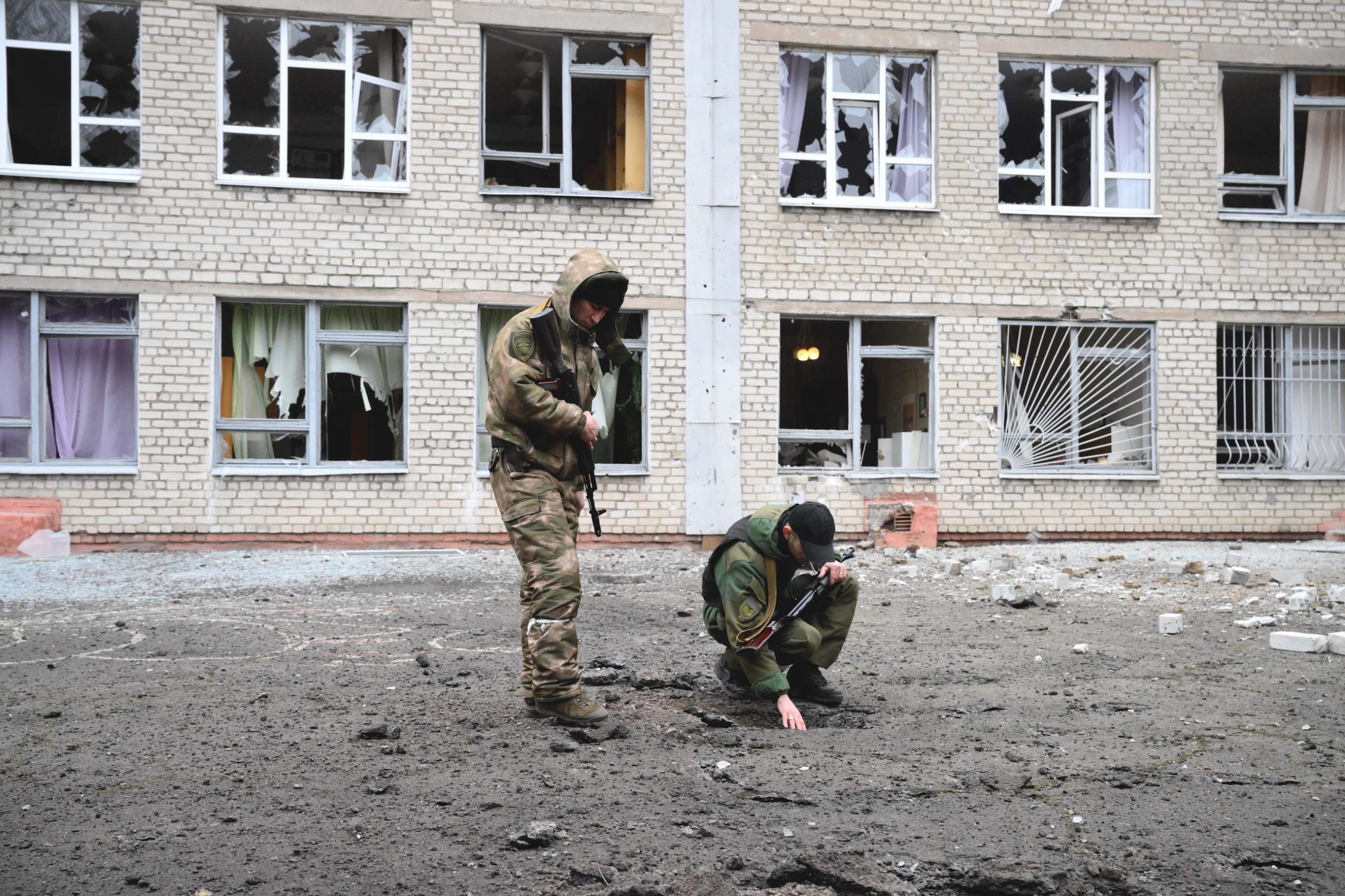Sign up for the daily CJR newsletter.
For years, I kept a copy of the September 11, 2001, print edition of the New York Times in a box at home. Splashed atop the front page, across four columns, was a color photograph of people waiting for the start of New York Fashion Week. Beneath that, there was a feature on the rise of morning shows on network TV. The lead story on the right was about bickering in Washington over a tax cut.
By the time most New Yorkers got around to reading that newspaper, their lives had been transformed. What seemed important the day before now seemed absurd.
I’ve thought a lot about that pre-9/11 newspaper as I’ve watched and read coverage of Russia’s attack on Ukraine these past few days. It has been a difficult, and occasionally awful, few years for the news business, and for cable news in particular. Obnoxious personalities have been given control of the microphone, which they’ve used to amplify petty fights. Social media, especially Twitter, became an assignment editor, its polarizing takes dictating much of the news cycle. Anchors mistook themselves for op-ed commentators rather than reporters. Every day was a four-column photo of fashion week.
But this week, some of the world’s biggest news outlets were able to shed the baggage of the past decade and take up sober, brave, important reporting. Amid the early attack on Kyiv, CNN correspondent Matthew Chance interrupted his live shot, on a balcony in the capital, so he could put on a helmet and flak jacket. Chance was clearly scared and flustered, an uncharacteristic look for cable news; Don Lemon had to remind him not to cover his microphone with his bulletproof vest. But he was also completely human, and committed to doing his job. The next day, Chance and his camera crew watched from close by as Russian troops claimed to take over an airport as part of efforts to take Kyiv.
A day later, in the subways of Ukraine, Clarissa Ward, Chance’s CNN colleague, interviewed young people and parents of children who told her, through tears, that they had no idea their lives would take this turn. It was moving without being sappy, and an important part of the story about the effects of the war on civilians. Meanwhile, in Moscow, CNN’s Nic Roberson filmed as police rounded up protesters by the dozen for voicing opposition to the war. It was not a comfortable place for a television correspondent to be, at this moment in history, but it was an important part of the story of Russia’s war against Ukraine.
Excellence has surfaced elsewhere across our biggest outlets in recent days, from the Times’ comprehensive daily scroll and the astonishing photography of Tyler Hicks, who seems to be everywhere, to the video fact-checking teams of the Washington Post. The measured, thoughtful coverage of the Financial Times and the Wall Street Journal has underscored their strength at covering stories of global consequence, and veteran foreign correspondents such as Richard Engel at NBC and the team at the BBC have driven home how important it is for news organizations to invest in people with long experience covering global conflict.
The journalism that hasn’t made the switch—to reporting over opinion, to facts over speculation—stood out as an outlier. On Friday, Morning Joe viewers on MSNBC were subjected to endless sermonizing from Joe Scarborough, from his anchor chair in the studio—the last thing we needed at a time when residents of Kyiv were making Molotov cocktails in a desperate effort to defend their homes. For Fox News, Ukraine has been a humiliation. Not only is that network completely outmatched by the on-the-ground expertise of CNN and MSNBC, but its insistence, especially in prime time, on framing this story as a matter of domestic politics is jarringly wrong. There have been plenty more discordant notes in the broader Ukraine coverage, almost always struck in the moments after cameras are pulled away from the reporters on the ground and given to the talking heads in the studio.
We are facing days, if not weeks and months, of horrific stories and images out of Europe. The crisis in Ukraine will test the world’s newsrooms to steer clear of grandstanding, avoid nationalism, prize reporting on the ground, and limit what we say to what we know. That could well prove to be too much to ask; in some cases, it already has. But at this point, early into this awful war, some of our biggest newsrooms are passing the test.
Has America ever needed a media defender more than now? Help us by joining CJR today.







